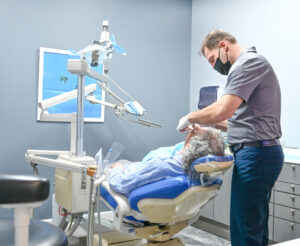How much do veneers cost? In this article, we explore the veneers teeth cost, factors influencing these prices, and the types of veneers available. Learn what to expect financially whether you choose porcelain or composite veneers.
Key Takeaways
- Dental veneers come in two main types: porcelain, which offers superior durability and a natural appearance, and composite resin, which is more affordable but less durable.
- The cost of veneers varies widely, with porcelain veneers ranging from $925 to $2,500 per tooth, and composite resin veneers ranging from $250 to $1,500 per tooth. Cost ranges depend on several factors, including geographic location, dentist expertise, and the number of veneers needed, so understanding these price variations can help you make an informed decision. If you’re considering other restorative options, you may want to compare pricing and options for dentures as well.
- Most dental insurance plans do not cover veneers as they are considered a cosmetic procedure. However, financing options such as payment plans through dentists, dental credit cards, and personal loans can help manage the cost of veneer treatments.
Introduction to Cosmetic Dentistry
Cosmetic dentistry is a specialized field dedicated to enhancing the appearance of your teeth and gums, helping you achieve the smile you’ve always wanted. Unlike general dentistry, which focuses on oral health and treating dental diseases, cosmetic dentistry is all about improving the aesthetics of your smile. Popular cosmetic treatments include dental veneers, teeth whitening, and gum contouring, each designed to address different concerns such as stained teeth, uneven gums, or chipped teeth.
With advancements in dental materials and procedures, cosmetic dentistry now offers more natural-looking and long-lasting results than ever before. Whether you’re looking to brighten your teeth, reshape your gums, or completely transform your smile with custom veneers, there’s a cosmetic treatment to suit your needs. Not only do these procedures enhance your appearance, but they can also contribute to better oral health by correcting dental imperfections and supporting healthy teeth and gums. Embracing cosmetic dentistry is a step toward greater confidence and a healthier, more radiant smile.
What Are Dental Veneers?
Dental veneers are thin, custom-made shells designed to cover the front surface of teeth, providing a significant aesthetic improvement. These cosmetic solutions, often considered a type of cosmetic treatment, are ideal for addressing issues such as:
- Discoloration
- Chips
- Worn-down teeth
- Gaps between teeth
- Minor misalignments
Veneers are bonded to the teeth using strong dental adhesives, ensuring a secure and durable attachment for long-lasting results.
Veneers offer a versatile approach to achieving a flawless smile.
Dental veneers come in two primary types: porcelain and composite resin. Each type offers its own unique benefits and may be suitable for different dental needs. Porcelain veneers are renowned for their natural-looking appearance and durability, making them a popular choice for those seeking a long-lasting solution. If you’re thinking about veneers, you might also be wondering how much do veneers cost, as the price can vary based on the material and specific needs of your smile.
Lumineers are a specific brand of ultra-thin, no-prep veneers that require minimal tooth preparation. They are known for being less invasive and are suitable for patients seeking a quick, pain-free cosmetic dental solution.
Composite resin veneers, on the other hand, are more affordable and can still provide a satisfactory aesthetic result, though they may not be as durable as their porcelain counterparts.
Average Cost of Dental Veneers
Understanding the cost of dental veneers is crucial for making an informed decision. If you are wondering how much veneers cost, a single veneer in the United States averages around $1,765, with prices ranging from $500 to $2,895 depending on various factors. Patients can expect to pay these amounts out-of-pocket, as most insurance plans do not cover cosmetic procedures like veneers. For those looking to transform their entire smile, the cost for a full set of veneers typically ranges from $7,200 to $20,000. Veneers are most commonly placed on the front teeth for cosmetic enhancement, and the condition of these teeth can directly affect the overall cost. The type of veneer material used significantly influences the overall cost, with porcelain veneers generally being more expensive than composite resin veneers. Other factors, such as geographical location, the materials used, and the complexity of the procedure, can also impact the final price.
When considering veneers, it’s essential to weigh the pros and cons of each type. Porcelain veneers, while more costly, offer superior durability and a more natural appearance. In contrast, composite resin veneers are less expensive but may not last as long or look as natural. This section will delve deeper into the costs associated with both porcelain and composite veneers.
Porcelain Veneers Cost
Porcelain veneers are considered the gold standard in cosmetic dentistry due to their excellent aesthetic appeal and longevity. How much do veneers cost? The dental veneers cost, particularly for porcelain veneers, ranges from $925 to $2,500 per tooth, making them a more substantial investment compared to other options. However, this higher price is justified by the superior quality and natural look of porcelain veneers, which can seamlessly blend with your natural tooth enamel. Porcelain veneers are also highly stain resistant, maintaining their bright appearance much longer than other materials. They effectively resist common stains from foods and beverages, helping your smile stay vibrant over time.
In specific regions, such as Maryland and Beverly Hills, the cost for a full set of porcelain veneers can range dramatically, from $20,000 to $70,000. Despite the higher initial investment, many find that the long-term benefits of porcelain veneers, including their durability, realistic appearance, and resistance to stain, make them well worth the cost.
Composite Veneers Cost
For those seeking a more budget-friendly option, composite veneers offer an attractive alternative. The cost of composite veneers ranges from $250 to $1,500 per tooth, making them significantly more affordable than porcelain veneers. In Rockville, Maryland, for instance, the average cost of composite veneers is between $500 and $1,000 per tooth.
Composite veneers can be applied directly in the dental office using a chairside method or created in a lab for a slightly higher cost. While they may not offer the same level of durability and natural appearance as porcelain veneers, composite veneers are also more susceptible to stain over time, whereas porcelain veneers are highly resistant to stains and maintain their appearance longer. Still, composite veneers provide a viable solution for achieving a brighter smile at a lower cost.
Affordable Veneers Options
If you’re dreaming of a perfect smile but are concerned about the cost, there are several affordable veneers options to consider. Composite veneers are a popular choice for those seeking a cost-effective solution. Made from composite resin, these veneers can be applied directly to the tooth to repair chips, cover stains, or improve the appearance of discolored teeth. While they may not be as highly durable as porcelain veneers, composite veneers still offer a significant improvement in the look of your smile at a fraction of the cost.
Another budget-friendly option is dental bonding, which uses a tooth-colored resin to repair minor dental imperfections such as small chips or gaps. For those looking for a non-permanent solution, removable veneers—sometimes called snap-on veneers—can be a great way to conceal imperfections and achieve a brighter smile without committing to a permanent procedure. While these affordable veneers may not last as long as porcelain options, they provide an accessible way to enhance your appearance and boost your confidence.
Factors Influencing the Cost of Veneers
Several factors can influence the overall cost of dental veneers, making it essential to consider all aspects before making a decision. Some factors to consider include:
- Geographic location: Dental offices in cities or high-cost living areas typically charge more for their services.
- Dentist’s experience and reputation: More experienced dentists often command higher fees, and the dentist’s experience can significantly impact the cost.
- Material used for the veneers: Different materials have different costs.
- Number of veneers needed: The more veneers required, the higher the cost.
- Additional procedures: If additional procedures, such as teeth whitening or gum contouring, are needed, they will add to the overall cost. Sometimes, extra dental work, such as treating tooth decay or gum disease, may be required before veneers can be placed. Preparatory dental care is also sometimes necessary to address underlying dental health issues before proceeding with veneers. Other factors, such as exams, cleaning, or additional cosmetic procedures, can also influence the total cost.
It’s important to consult with a cosmetic dentist to get an accurate estimate of the cost based on your specific needs and circumstances.
Another crucial factor is the number of veneers needed. The more veneers required, the higher the overall cost due to the increased use of materials and time. Furthermore, additional procedures such as tooth preparation or gum disease management can add to the overall expense. Understanding these factors, including extra dental work and preparatory dental care, can help you better estimate the total investment required for your desired smile makeover.
Dentist’s Expertise and Location
The expertise and location of your cosmetic dentist can significantly affect the cost of veneers. Dentists with extensive training and years of experience in performing veneer procedures often charge higher fees. Their advanced skills and reputation for delivering excellent results can justify these higher costs. Additionally, dental offices located in high-cost living areas, such as major cities, tend to have higher operating expenses, which are reflected in their prices.
For instance, a highly experienced cosmetic dentist in Beverly Hills may charge substantially more for veneers compared to a less experienced dentist in a smaller town. Therefore, it’s crucial to balance the cost with the quality of service and expertise when choosing a dentist for your veneer procedure.
Number of Veneers Needed
The number of veneers required for your smile makeover directly impacts the overall cost. If you need veneers for multiple teeth, the cumulative cost will naturally be higher. More veneers mean more materials and more time spent by the dentist, which contributes to the increased expense.
In some cases, dentists may offer discounted rates for multiple veneers or bundled pricing for a full-mouth makeover. It’s essential to discuss these options with your cosmetic dentist to understand how the number of veneers needed will affect your overall investment.
Additional Procedures
Additional procedures required before veneer placement can also influence the overall cost. For instance, if you have pre-existing dental issues such as tooth decay or gum disease, these conditions must be addressed before veneers can be applied. Treatments like root canals or gum contouring can add to the total expense.
Tooth preparation is another factor that can increase costs. When asking “how much are veneers?” it’s important to consider factors like tooth preparation, as the complexity of this step can significantly influence the final cost. The veneer cost may also be affected by the complexity of the preparation process. Removing a thin layer of enamel to ensure the veneers fit correctly is a standard part of the process, but it can add to the overall investment. Discussing these potential additional procedures with your dentist during the initial consultation can help you better anticipate the total cost of your veneer treatment.
The Importance of Gum Contouring
Gum contouring is an essential cosmetic dentistry procedure that can dramatically improve the overall appearance of your smile. This treatment involves carefully reshaping the gums to create a more balanced and symmetrical look, often in combination with dental veneers. By removing excess gum tissue or correcting uneven gum lines, gum contouring helps your teeth appear longer and more proportionate, resulting in a natural looking, healthy smile.
Beyond aesthetics, gum contouring can also support better oral health by reducing areas where bacteria can accumulate, lowering the risk of gum disease. For many patients, combining gum contouring with veneers ensures that both the teeth and gums work together to create a harmonious, attractive appearance. If you’re considering cosmetic dentistry, don’t overlook the role of your gums—this simple procedure can make a significant difference in both the look and health of your smile.
Insurance and Financing Options for Veneers
Health or dental insurance typically does not provide dental insurance cover for the cost of veneers, as they are considered a cosmetic procedure. However, there are some exceptions where insurance might provide partial coverage if the veneers are deemed medically necessary, such as for repairing a damaged tooth. Insurance may also cover repairs to veneers in certain cases, such as fixing chips or cracks. Despite this, most health or dental insurance plans do not cover elective cosmetic dentistry treatments, so patients should be prepared to pay out-of-pocket for most veneer procedures.
Fortunately, many dental offices offer financing to make veneers more affordable. There are several financing options available to help manage the cost of veneers and achieve your smile goals. Some options include:
- Payment plans offered by dentists, some with 0% APR options, allowing you to spread the cost over several months.
- Dental credit cards like CareCredit, which offer promotional financing options specifically for healthcare expenses, including dental procedures.
- Personal loans from banks or credit unions that can be used to finance your veneer treatment.
Discussing these options with your dentist can help you find a suitable financing plan for your needs. Flexible payment options can make it easier to pay for veneers and reach your desired smile goals.
Lifespan and Maintenance of Veneers
The lifespan of dental veneers can vary depending on the material and how well they are maintained. Porcelain veneers typically last between 8 to 12 years, and with proper care, they can last well over a decade and potentially up to 20 years. Composite veneers, on the other hand, generally last around 5 years, though they can last 4-8 years with adequate care.
Proper maintenance is crucial for extending the lifespan of your veneers. This includes:
- Practicing proper dental hygiene by brushing and flossing regularly
- Using non-abrasive toothpaste
- Avoiding habits that could damage the veneers, such as biting nails or chewing on hard objects
- Avoiding certain foods that could damage or stain your veneers, such as hard, sticky, or stain-causing foods
- Regular dental check-ups to ensure the veneers remain in good condition and to address any potential issues early on
By following these maintenance tips, you can enjoy the benefits of your veneers for many years.
Steps to Getting Veneers
The process of getting veneers involves several key steps, starting with an initial consultation. During this consultation, your dentist will assess your dental health and determine if veneers are a suitable option for you. This is also the time to discuss your aesthetic goals and select the shade of your veneers to match your natural teeth color.
Once it’s determined that veneers are the right choice, the next step is tooth preparation. This involves:
- Removing a thin layer of enamel to ensure the veneers can be securely attached.
- Taking impressions of your teeth using a 3D digital scanner or soft putty in a tray.
- Placing temporary veneers while waiting for your permanent ones to be made.
Finally, during the veneer placement procedure, a strong dental adhesive is used to bond the veneers to your teeth, creating an instant transformation. The entire process typically takes around three weeks, with minimal discomfort and immediate results.
Benefits of Investing in Dental Veneers
Investing in dental veneers offers numerous aesthetic and functional benefits. Veneers can conceal imperfections such as stains, chips, and misalignments, providing a flawless and natural-looking smile. Porcelain veneers, in particular, are praised for their durability and realistic appearance, making them a popular choice for those seeking long-lasting results.
Beyond aesthetics, veneers can also:
- Improve oral health by strengthening the tooth structure and supporting proper bite alignment
- Reduce the risk of further damage and decay, contributing to overall dental health
- Provide a confidence boost, which can positively impact various aspects of your life, from social interactions to professional opportunities.
With minimal maintenance requirements, dental veneers offer a lasting solution for achieving a beautiful and healthy smile.
Choosing the Right Cosmetic Dentist
Selecting the right cosmetic dentist is crucial for achieving the best results with your veneers. Here are some tips to help you find the right dentist:
- Look for a dentist with specialized training and certifications in cosmetic dentistry.
- Find a dentist with extensive experience in performing veneer procedures.
- Review before-and-after photos of their previous work to get a sense of their skill and the potential results you can expect.
- Membership in professional organizations such as the American Dental Association is a mark of credibility and adherence to industry standards.
Patient reviews and testimonials are also valuable resources for gauging the reputation and quality of a dentist’s work. Scheduling a personalized consultation allows you to discuss your goals, expectations, and any concerns you may have, helping you establish rapport with the dentist. It’s important to choose a dentist who provides a transparent treatment plan, clearly explaining:
- the process
- the timeline
- the cost
- the expected outcomes
By considering these factors, you can ensure that you select the right dentist for your veneer procedure.
Summary
Dental veneers offer a transformative solution for achieving a radiant smile, with options to suit various budgets and aesthetic preferences. By understanding the costs, factors influencing these costs, and available financing options, you can make an informed decision that aligns with your needs. Investing in veneers not only enhances your appearance but also boosts your confidence and supports long-term dental health. Choosing the right cosmetic dentist is essential for achieving satisfying results and ensuring a smooth experience. Embrace the journey to a brighter smile with the knowledge and insights gained from this guide. How much do veneers cost is a common question, and knowing the pricing details helps you plan effectively for this life-changing treatment. Many patients also ask how much are veneers as part of their research.
Frequently Asked Questions
What are dental veneers?
Dental veneers are thin shells that cover the front surface of teeth to improve their appearance by addressing issues like discoloration, chips, and gaps.
How much do porcelain veneers cost?
Porcelain veneers can cost between $925 and $2,500 per tooth, with a full set ranging from $20,000 to $70,000 in some areas. These estimates depend on various factors, such as the location and the complexity of the procedure.
Are dental veneers covered by insurance?
Dental veneers are generally not covered by insurance, as they are considered a cosmetic procedure. However, some plans may provide partial coverage if they are deemed medically necessary.
How long do veneers last?
Veneers can last between 8 to 12 years with proper care, potentially up to 20 years, while composite veneers generally last around 5 years. With proper maintenance, you can expect a long lifespan from porcelain veneers.
What should I consider when choosing a cosmetic dentist for veneers?
When choosing a cosmetic dentist for veneers, consider their expertise, experience, patient reviews, transparency of treatment plan, and review before-and-after photos of their work. These factors can help you make an informed decision in selecting the right dentist for your veneers.








